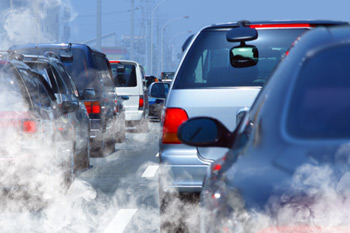A new study from Harvard found increased hospital admissions in Medicare recipients with fine particulate air pollution (PM2.5) at levels of air pollution below both the current U.S. (35µg/m3) and W.H.O. (25µg/m3) guidelines for daily PM2.5 exposure.
They found a 10-15% increase in risk of admission per 1µg/m3 increase in daily PM2.5 for conditions known to be affected by PM2.5, such as congestive heart failure, pneumonia, COPD/emphysema, heart attacks, and heart arrhythmias. They also found a 15-25% increase in risk of admission per 1µg/m3 increase in daily PM2.5 for other conditions not previously linked to PM2.5, such as dehydration, sepsis, urinary tract infections, and acute renal failure.
The study found that per 1µg/m3 increase in PM2.5 there were an extra 5700 hospital admissions per year, and these admissions resulted in 32,000 days in the hospital, 634 deaths, and an extra $100 million in in-patient and post acute-care costs. In addition to the deaths, a large number of people were discharged needing significant care: skilled nursing or home health care.
Given that the current U.S. standard for daily PM2.5 is 10µg/m3 higher than the W.H.O. standard of 25µg/m3, and that the study found increased risk at levels below the W.H.O. standard, we would all be healthier if our standard is strengthened.
Link to a news article about the study:
https://insideclimatenews.org/news/27112019/fossil-fuel-air-pollution-hospital-increase-underlying-kidney-skin-blood-illness
Link to the scientific study:





